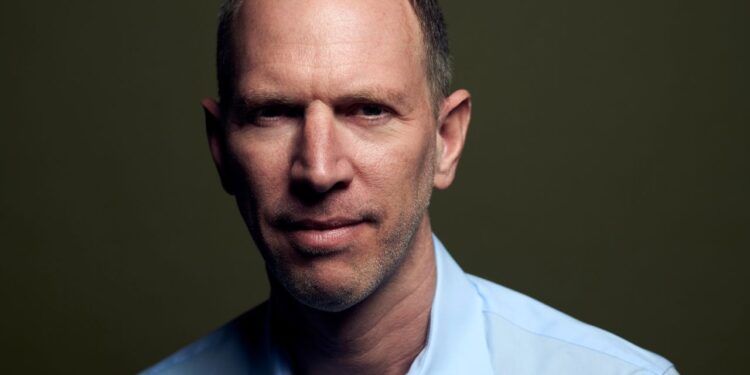- A Gartner survey shows that 65% of respondents feel that the last two years caused a shift in their values outside of work, and forced some to reconcile with the role that work plays in their everyday lives.
- The new era of work represents a place that values the human side of business, from diversity and sustainability, to community and inspiration, and everything in between.
- Co-CEO and co-founder of The House Of Beautiful Business recently sat down with Allwork.Space’s Future of Work Podcast to discuss why “beauty” in the workplace is universal, and how finding community can create a sustainable work environment.
The pandemic, despite the pain and uncertainty it’s brought, has reignited a sense of purpose among workers.
Professionals want more from their jobs, such as the feeling that they are part of a greater community and creating meaningful change in the world.
In fact, Gartner’s 2021 Hybrid And Return To Work survey shows that 65% of respondents feel that the last two years caused a shift in their values outside of work, and forced some to reconcile the role that work plays in their everyday lives.
The possibilities of what true fulfillment can look like have been upended. No longer are workers solely concerned about their paychecks — they want to find balance in their personal lives, join a like-minded community, and play a contributing role in the betterment of society.
At least, that’s how Tim Leberecht views things.
The co-CEO and co-founder of The House Of Beautiful Business recently sat down with Allwork.Space’s Future of Work Podcast to discuss why “beauty” in the workplace is universal, how finding community can create a sustainable work environment, and why focusing on just the process limits businesses.
Some quotes have been edited for clarity or length
The Human Side of Business
According to Leberecht, his surname “means right to live or live the right life. So, it’s kind of like a moral imperative.”
Perhaps this was the subconscious foundation for what he has accomplished since then.
In 2017, Leberecht launched The House Of Beautiful Business with the help of business partner Till Grusche.
“The idea really is to create a brave new space for different conversations about the future of work, to experience what a completely reimagined brand of business might look like in a very loving and multidisciplinary way,” said Leberecht.
“And people always ask us, ‘So what exactly do you mean by beautiful business? What’s the definitive, you know, list or definition?’”
Without formally spelling it out, Leberecht believes that the word beautiful works from a business perspective because it is “elusive” and interpretive.
Simultaneously, it represents the new era of work: a place that values the human side of business, from diversity and sustainability, to community and inspiration, and everything in between.
“[It] means it’s a business that could be more inclusive, more sustainable, more imaginative, more humane, more interdisciplinary, more tender, softer, more ambiguous, more poetic.”
Historically, business has relied on data, analytics, and meeting quotas to measure their success. While these metrics are certainly important for a business’ bottom line, the human touch is what will set companies apart in the war for talent and in the face of economic uncertainty.
Challenges in the Future Of Work
The road to building a beautiful business requires much work, though.
According to Leberecht, one of the most glaring obstacles in the way of companies achieving a so-called “beautiful” business is the Great Resignation.
Some call it a newfound sense of purpose, particularly among younger generations, but business leaders may know it as a thorn in their side.
However, addressing why resignation rates have increased will be critical for companies trying to retain and attract talent. Without doing so, a bad experience means workers are more likely to quit their jobs than ever before.
In addition to the high risk of turnover, companies will also be challenged to adapt to growing demand for workplace flexibility, in terms of location and scheduling.
More and more, the workforce is inching towards a wider distribution, with colleagues working on opposite sides of the world becoming more common.
This comes with its own fair share of issues, such as lapses in communication, feelings of isolation, lack of workplace recognition, and the overarching theme: lack of purpose.
“The workplace has such a responsibility to integrate us into society, to give us a sense of community and belonging, and to provide social structures that give us a sense of stability far beyond the performance or getting tasks done.”
Fostering a Sense of Belonging
The importance of prioritizing community cannot be underestimated in the modern workforce.
While this might vary depending on the business itself, hosting conferences, team-building events, and relaxed gatherings can all serve as the foundational building blocks for a healthy company culture.
According to Leberecht, the formula for a well-rounded workplace should involve outlining specific outcomes and including an impromptu side, such as having conversations outside of work-related goals.
“If you have a purely efficiency run organization, then basically you have no culture because culture is an excess.
“It’s everything that is not necessary by strict management terms… and saying, as a leader, we’re only going to grow by 20% instead of 25%, but we will have a healthy culture that will benefit the wellbeing and the mental and physical health of people.”



 Dr. Gleb Tsipursky – The Office Whisperer
Dr. Gleb Tsipursky – The Office Whisperer Nirit Cohen – WorkFutures
Nirit Cohen – WorkFutures Angela Howard – Culture Expert
Angela Howard – Culture Expert Drew Jones – Design & Innovation
Drew Jones – Design & Innovation Jonathan Price – CRE & Flex Expert
Jonathan Price – CRE & Flex Expert












